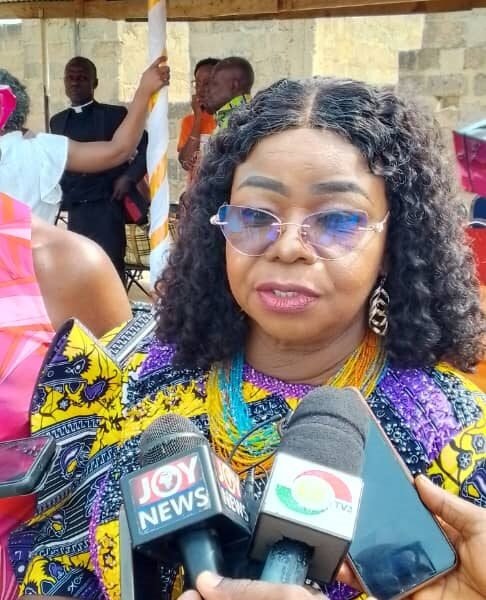News
Report cancer cases to qualified health professionals

The President of the Breast Care International (BCI), Dr Beatrice Wiafe-Addai, has observed that “Some patients come with end-stage conditions of cancer, following prolonged days at quack health facilities.”
Dr Wiafe-Addai, who is also the Chief Executive Officer (CEO) of Peace and Love Hospitals, said the trend where “cancer treatment in Ghana is mired in superstition and bogged down by mounting financial challenges,” was worrying.
She indicated that this at Beposo, in the Bosomtwe district of the Ashanti region, on World Cancer Day 2025, which was observed on Tuesday, under the theme: ‘United by Unique.’
World Cancer Day aims to improve awareness and knowledge of cancer so that it can be better detected and treated.
The day, organised by the Union for International Cancer Control (UICC), brought scores of residents and students of Beposo for sensitisation on the disease.
According to her, it was important to wage “a sustained, vigorous education on cancers countrywide for the people to be enlightened about the disease and change the belief that the disease has spiritual elements.”
Furthermore, Dr Wiafe-Addai stated that the high cost of cancer treatment of has put most of the survivors into poverty, and that there was the need to support them, “because everybody is a potential cancer and other communicable disease patient.”
She then urged the government, as a matter of urgency, to put cancer patients on the Livelihood Empowerment Against Poverty (LEAP) as a source of support for them.
In her suggestion to help increase cancer education in Ghana, she called for the evolution of people-centred programmes and policies to ameliorate the plight of cancer patients.
“A people’s centred approach leads to improved patients’ well-being, higher quality care, and increased trust in healthcare providers,” she stated, adding that people-centred care included initiatives such as community health programmes tailored to local health issues and cultural competence training for healthcare providers, among others.
Dr Wiafe Addai advised women not to treat cancer-related diseases spiritually but rather to seek early medical attention “because the disease is not caused by any supernatural activity.”
“The cancer disease is curable, preventable, and treatable. At least visit your hospitals for a thorough medical checkup once a year to prevent escalation of the disease,” she added.
Dr Cary Adams, CEO of UICC noted that the theme (United By Unique) recognised that “every experience with cancer was unique and everyone has unique needs, unique perspectives and a unique story to tell, that people touched by cancer are improved, are united in a shared ambition to see governments implement policies to improve cancer prevention.”
Nana Atakora Bonsrah I, the Caretaker of Ankaase, expressed gratitude to Breast Care International and their partners for the sensitisation and screening of the residents in the area to create the awareness on cancer.
He said the awareness creation was the best way to prevent the disease, and called on stakeholders in the health sector, individuals and corporate organisations to get involved in the fight against cancer.
From Kingsley E. Hope, Kum